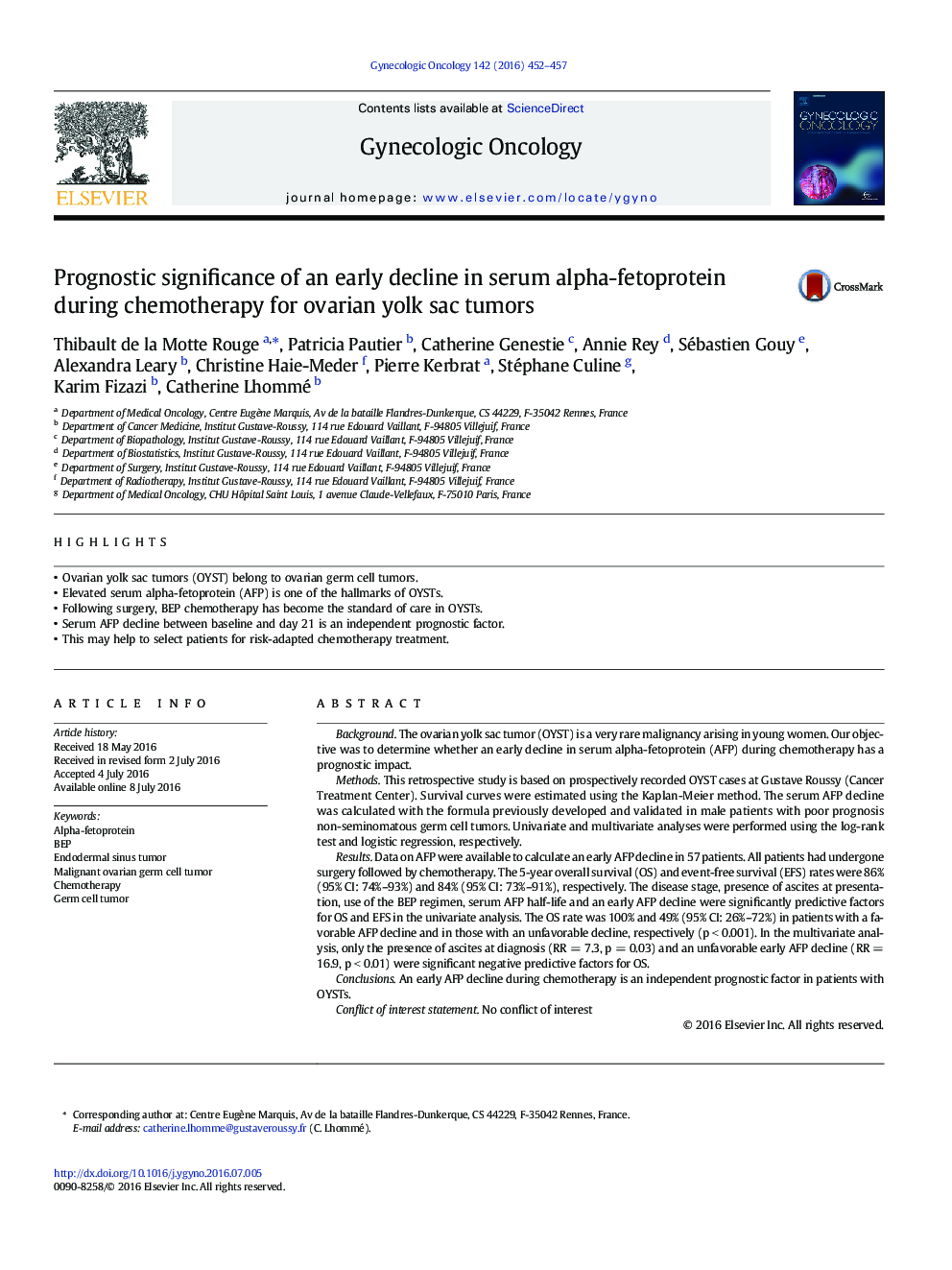| کد مقاله | کد نشریه | سال انتشار | مقاله انگلیسی | نسخه تمام متن |
|---|---|---|---|---|
| 6182972 | 1254057 | 2016 | 6 صفحه PDF | دانلود رایگان |
- Ovarian yolk sac tumors (OYST) belong to ovarian germ cell tumors.
- Elevated serum alpha-fetoprotein (AFP) is one of the hallmarks of OYSTs.
- Following surgery, BEP chemotherapy has become the standard of care in OYSTs.
- Serum AFP decline between baseline and day 21 is an independent prognostic factor.
- This may help to select patients for risk-adapted chemotherapy treatment.
BackgroundThe ovarian yolk sac tumor (OYST) is a very rare malignancy arising in young women. Our objective was to determine whether an early decline in serum alpha-fetoprotein (AFP) during chemotherapy has a prognostic impact.MethodsThis retrospective study is based on prospectively recorded OYST cases at Gustave Roussy (Cancer Treatment Center). Survival curves were estimated using the Kaplan-Meier method. The serum AFP decline was calculated with the formula previously developed and validated in male patients with poor prognosis non-seminomatous germ cell tumors. Univariate and multivariate analyses were performed using the log-rank test and logistic regression, respectively.ResultsData on AFP were available to calculate an early AFP decline in 57 patients. All patients had undergone surgery followed by chemotherapy. The 5-year overall survival (OS) and event-free survival (EFS) rates were 86% (95% CI: 74%-93%) and 84% (95% CI: 73%-91%), respectively. The disease stage, presence of ascites at presentation, use of the BEP regimen, serum AFP half-life and an early AFP decline were significantly predictive factors for OS and EFS in the univariate analysis. The OS rate was 100% and 49% (95% CI: 26%-72%) in patients with a favorable AFP decline and in those with an unfavorable decline, respectively (p < 0.001). In the multivariate analysis, only the presence of ascites at diagnosis (RR = 7.3, p = 0.03) and an unfavorable early AFP decline (RR = 16.9, p < 0.01) were significant negative predictive factors for OS.ConclusionsAn early AFP decline during chemotherapy is an independent prognostic factor in patients with OYSTs.Conflict of interest statementNo conflict of interest
Journal: Gynecologic Oncology - Volume 142, Issue 3, September 2016, Pages 452-457
